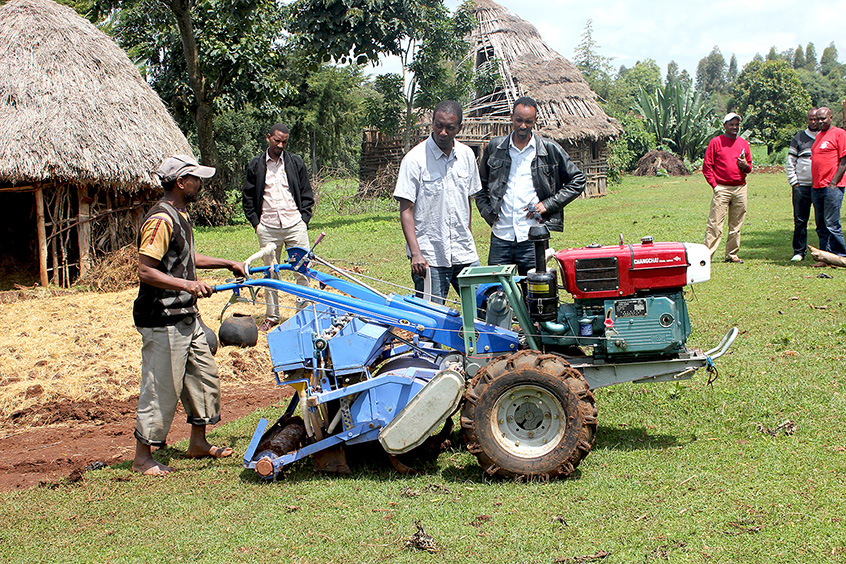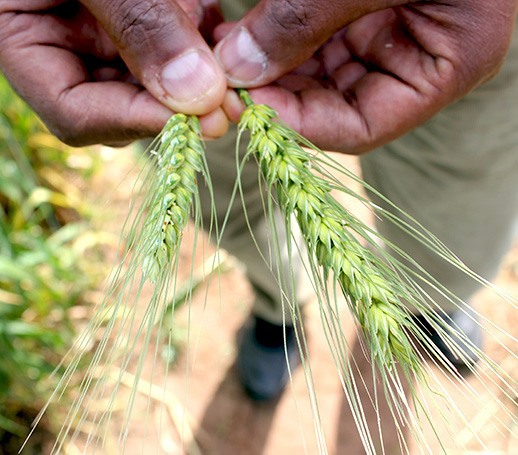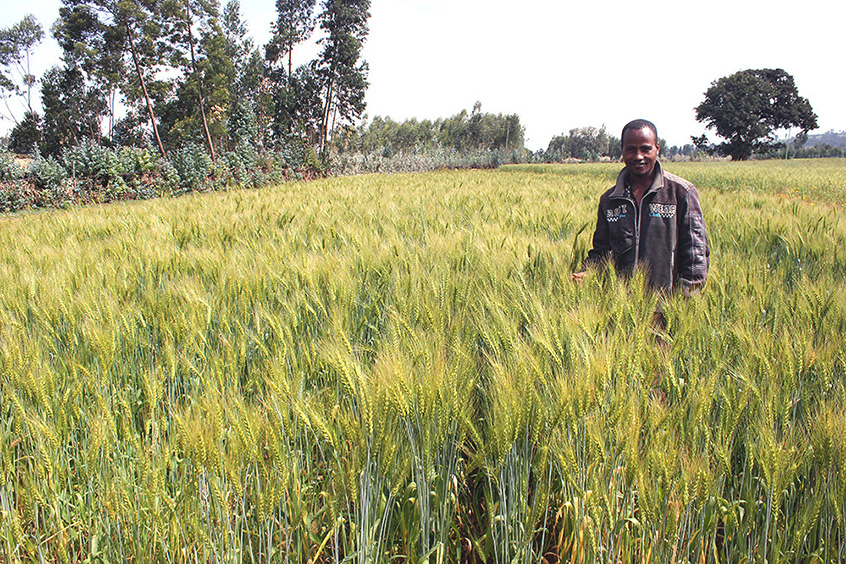
Agronomic practices that can close the wheat yield gap in the Ethiopian highlands are well known: row planting, precise fertilizer application, timely planting, etc. But their implementation generally increases the demand for human labor and animal draft power. And the availability of farm power in the Ethiopian highlands is stagnating, or even declining. The cost of maintaining a pair of oxen is becoming prohibitive for most farmers. Also, the rural population is aging as a result of young people migrating to the fast-growing cities of Ethiopia in search of more rewarding livelihood opportunities than farming.
Land preparation, the most power-intensive farming operation, is often delayed when farm power is limited, causing severe yield penalties. Simplification of land preparation–i.e., direct seeding without prior tillage–allows for quick and timely crop establishment. This can be achieved through the use of single-axle, low-powered, two-wheel tractors (2WTs) that are well adapted to the small fragmented fields in the Ethiopian highlands and to the limited resources of smallholders. They are also appropriate for the skill level of local mechanics.

from a neighboring conventionally established field planted on the same
date, with the same variety and the same inputs. Photo: Frédéric Baudron
In partnership with the Ethiopian Institute of Agricultural Research (EIAR), CIMMYT-Ethiopia has been testing the use of 2WTs for direct seeding of wheat since March 2013 through the FACASI (Farm Power and Conservation Agriculture for Sustainable Intensification) project funded by AIFSRC (Australian International Food Security Research Centre) and the Africa RISING (Research in Sustainable Intensification for the Next Generation) project funded by USAID (United States Agency for International Development).
During the last growing season (which just ended), the technology was tested on-station and in several farmers’ fields, in five highland sites across the country. The technology reduced the time needed to establish a wheat crop by a factor of more than 10 (from about 100 hours per ha to less than 10) using only 10 to 15 liters of fuel per ha. In addition, yield was consistently higher–about 60%, on average–than when using the conventional crop establishment method.

However, making this technology available to the large number of small-scale wheat farmers will require innovative delivery systems. The provision of mechanization services by rural entrepreneurs appears to be a viable and equitable option, as very few farmers are able to purchase machines individually; furthermore, it is not profitable for farmers to own machines unless they provide services. Through FACASI, Africa RISING (and, soon, a new project supported by GIZ) CIMMYT, and EIAR are supporting such delivery systems through market linkages, promotion, capacity-building, and access to finance.
 Capacity development
Capacity development